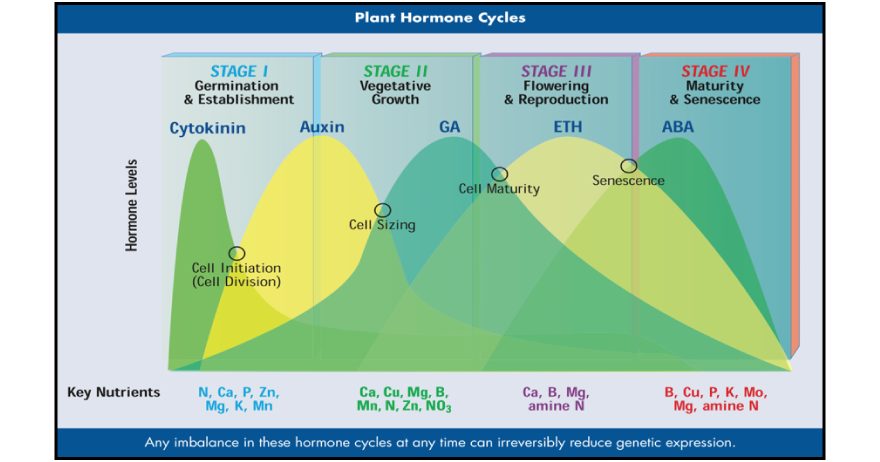Introduction to Plant Hormones: Ethylene – The Regulator
Over the last three weeks we have gone over the macro-growth hormones, essential for the production of new cells and plant growth. This week and next week we will discuss the two macro-stress hormones: ethylene and Abscisic acid.
Ethylene is a gas produced in the cells to regulate the movement of hormones. Ethylene comes in two forms:
Normal Ethylene Levels
- Controls the movement of auxin from various cells within the plant. Without ethylene, all food movement would be directed towards new apical meristematic leaf tissue with little movement to the roots (storage tissue) or developing fruit.
- Signals reproductive maturity and initiates flowering and fruiting.
- Increases as the plant ages to initiate the ripening process. Encourages an increase in ABA to drive plant tissue (seed, fruit, and storage tissue) into dormancy. This facilitates senescence (the death of old cells) resulting in better storage shelf life of the harvested plant parts.
Excess Ethylene Levels
- Produced under stress conditions as a signal for the plant to synthesize protectant proteins to help overcome moderate stress.
- In excess, ethylene will cause premature senescence and cell death.
Contact your Stoller sales representative for more information.

